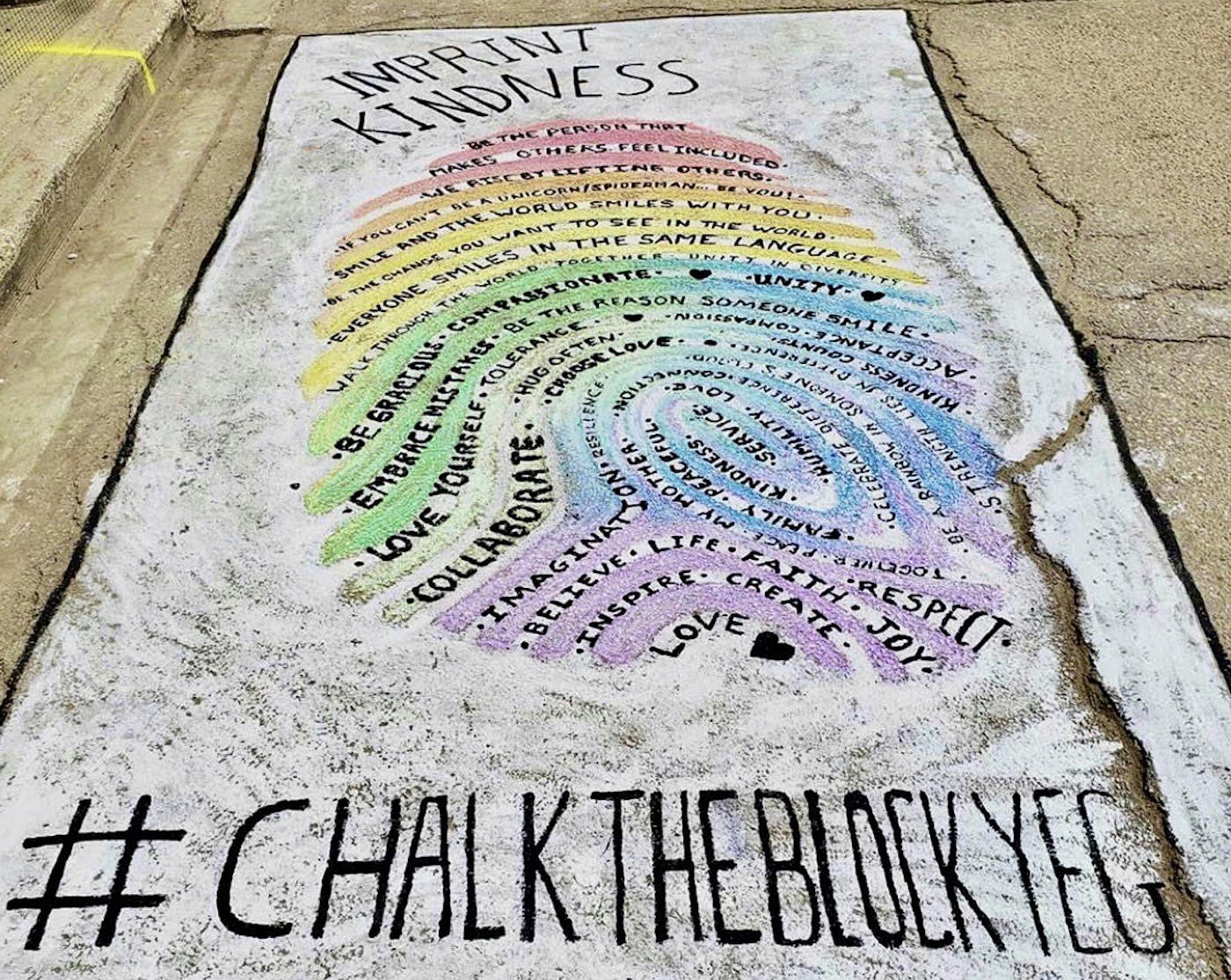Edmonton artists and art lovers, it’s your time to shine. And you may just go viral in the process. Get ready to add some colour to our city’s streets and take part in an art campaign and challenge designed to brighten neighbourhoods and celebrate our communities. And, unlike most social media challenges, this one will remain commemorated offline for the days to come — right underneath your feet.
Last Saturday, YEG Downtown Collaboration launched #ChalkTheBlockYEG, a street art campaign that will be running until July 18. The campaign invites Edmonton businesses and residents to grab some chalk, get out on the streets in their neighbourhood, and create some memorable artwork on the pavement.
The kick-off event took place on Saturday at the Downtown Farmers Market, where YEG Downtown Collaboration, in partnership with the United Way of the Alberta Capital Region and the Downtown Farmers’ Market, hosted a live drawing of the chalk artwork. Participating artists included two Indigenous artists, IM and The Quarters, as well as several artists from the Crestwood Community League, led by Diana Steele.
In fact, the co-founder of #ChalkTheBlockYEG, Elliot Rose of YEG Downtown Collaboration, says the entire campaign was inspired by the life-sized Monopoly board chalk artwork in west Edmonton, completed by the same artists from the Crestwood Community League this past spring. Several local businesses have joined the challenge, including District Café & Bakery, The Nook Cafe, Cafe Blackbird and Transcend Coffee & Roastery.
“Each coffee shop will be doing an art sidewalk chalk masterpiece of their own,” says Rose. “The theme is celebrating community. And the idea is for their patrons to take pictures, share them on social media, with a hashtag #ChalkTheBlockYEG to spread the message to the community.”
He says the idea was to show support and appreciation for Edmonton’s communities and businesses.
“It’s a campaign to celebrate the communities that have really uplifted and carried us through this crisis, that’s the biggest thing,” says Rose. “I think everyone, and especially coffee shops, and local restaurants have played a huge part in that, our mental and physical recovery, just because everyone’s been so socially isolated and haven’t left their homes much. I think that sense of building community was huge. Reaching out to your loved ones, your neighbours dropping off big goods for each other. It’s all the little things that we did, that really cultivated community.” Though the challenge started with coffee shops and established artists, Rose hopes it will grow to include residents and neighbourhoods all over the city.
